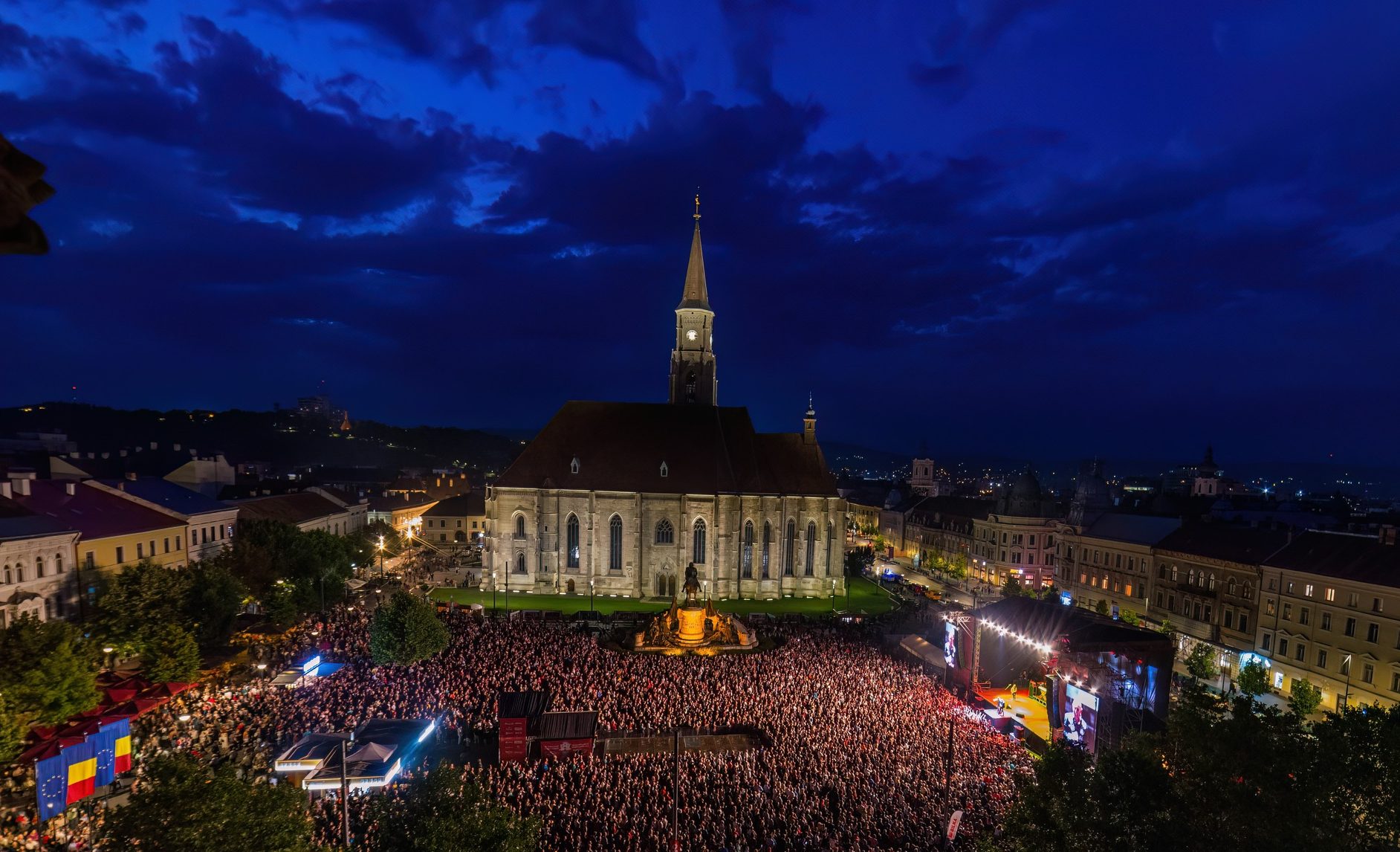
The main organizer of the event stressed that "the treasure of the city is (...) the Hungarian people living in it."Continue reading
The tenth edition of the Vásárhelyi Forgatag (Whirl of ‘Vásárhely) will make Târgu Mureș (Marosvásárhely in historic Hungary) the cultural capital not only of Szeklerland, but of the entire Carpathian Basin for a few days, said Árpád János Potápi, State Secretary for National Policy, on Sunday at the gala evening closing the five-day event.
Târgu Mureș organized its first festival a decade ago, when it was still out of the city and huddled on the banks of the Mureș river. Today, not only has the cultural fair found its rightful place in the historic city center, but the last elections saw the organizers of the event elected to lead the Romanian-majority city, the Prime Minister’s State Secretary noted.
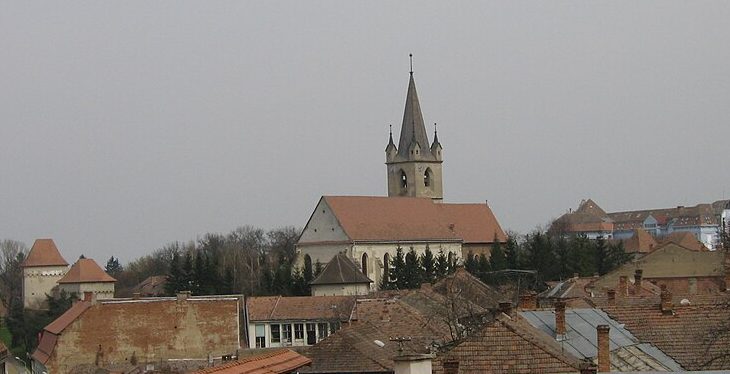
The Castle of Marosvásárhely. Photo: Wikipedia CC
The main venue this year was the castle. Visitors could take part in special activities every day, including guided tours led by historians, environmental education programs, and talks with experts on the Romanian health system. In the evenings, there were concerts and performances by local theater companies.
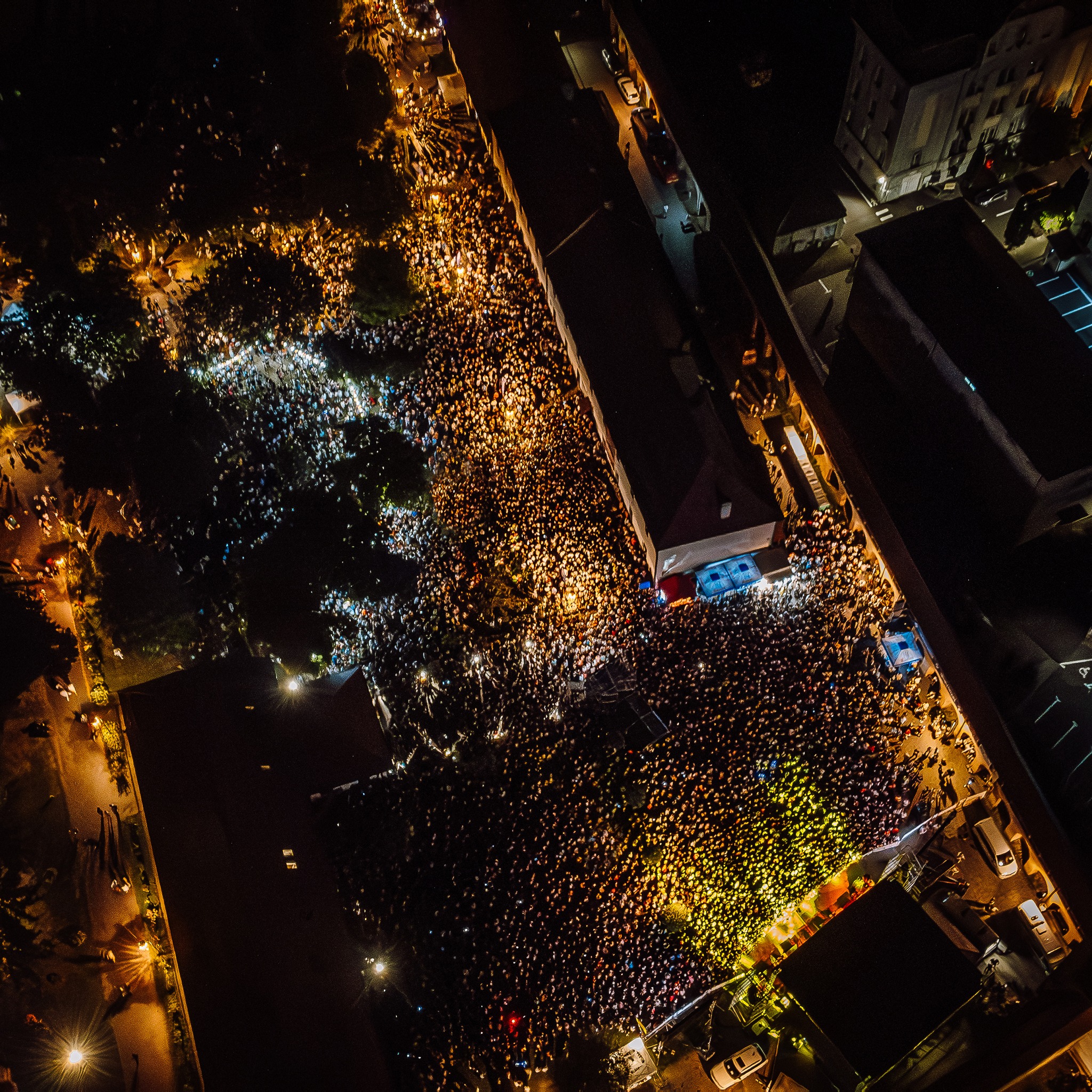
Crowds at the Hungarian hard rock band EDDA concert. Photo: Facebook/Vásárhelyi Forgatag
Hungarian days are now being organized in many towns throughout Transylvania, providing an opportunity to showcase Hungarian culture, strengthen the local community, the will to live, and give a vision of the future of the Hungarian nation, of the prosperity of the homeland, of the existence of the Carpathian Basin,
Potápi stressed. The state secretary informed public media that the Hungarian government is doing everything possible to ensure that Hungarian communities everywhere in the Carpathian Basin can strengthen themselves, preserve, and renew the culture of their ancestors, have the majority nation recognize their values, and be proud of their nationality.
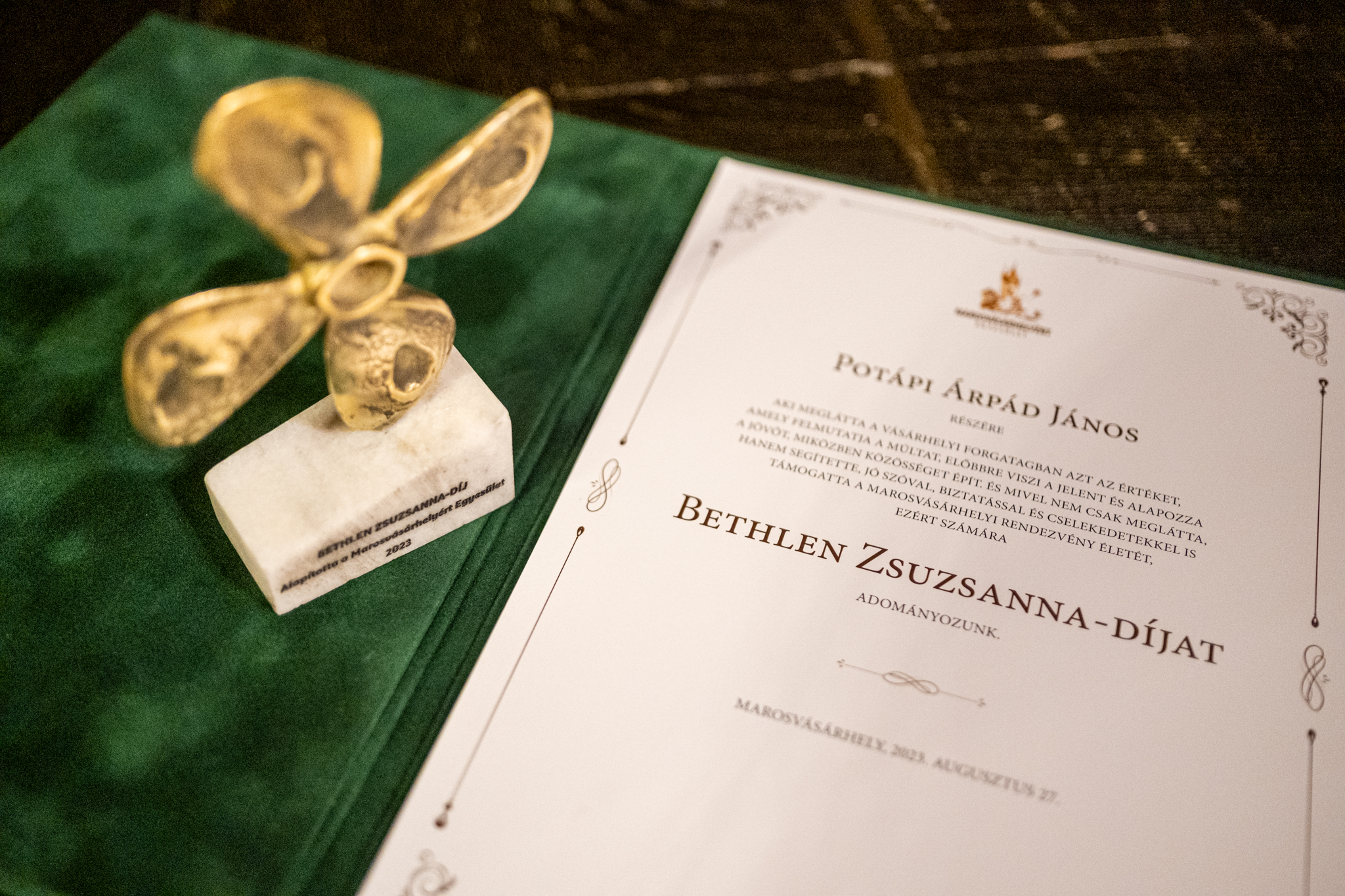
Photo: Facebook/Nemzetpolitikai Államtitkárság
At the gala evening, the organizers also presented Potápi, among others, with the Zsuzsanna Bethlen Prize, which was established on the occasion of the jubilee to honor those who have done a lot to strengthen the event.
Among the recipients were also Târgu Mureș-born Barna Pál Zsigmond, Parliamentary State Secretary of the Ministry of European Union Affairs, and Réka Brendus, Head of the Department of the State Secretariat for National Policy.
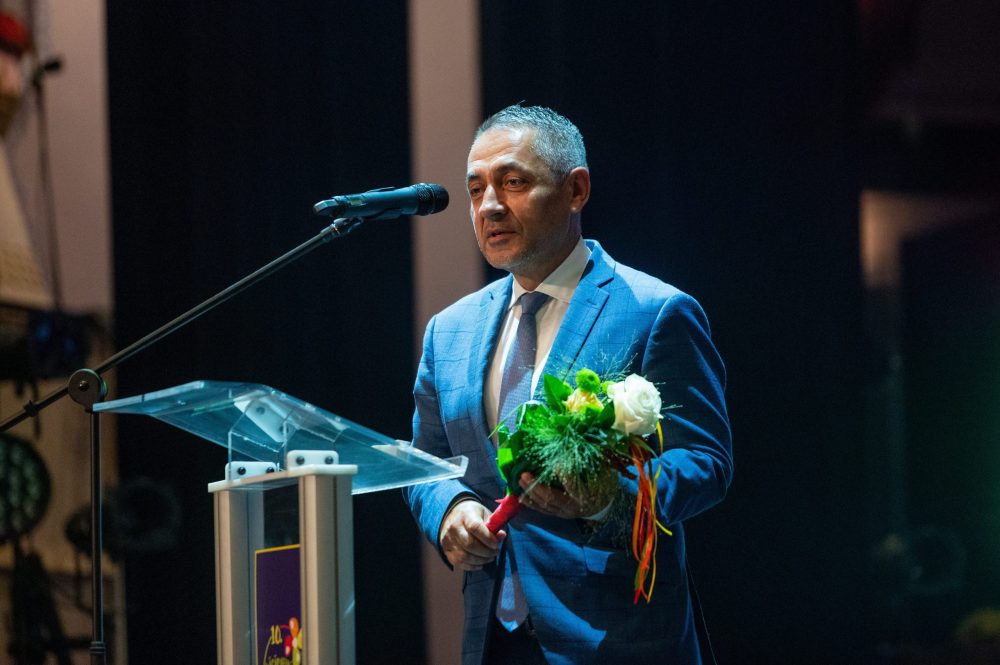
Árpád János Potápi, Minister of State for National Policy of the Prime Minister’s Office, speaks after receiving the Zsuzsanna Bethlen Award at the gala closing the Vásárhely Forgatag event series on August 27, 2023. MTI/Gábor Kiss
The Association for Târgu Mureș, organizing the joint celebration of the Hungarian community in Târgu Mureș, has awarded the newly established prize to ten supporters, artists, and entrepreneurs. The bronze windmill-shaped sculpture bears the name of
Zsuzsanna Bethlen (1754-1797), wife of Sámuel Teleki, who founded Teleki Téka, a library of 1,200 Hungarian books, considered the only 18th century Transylvanian “women’s library” to have survived in its entirety.
Featured image: Facebook/Vásárhelyi Forgatag